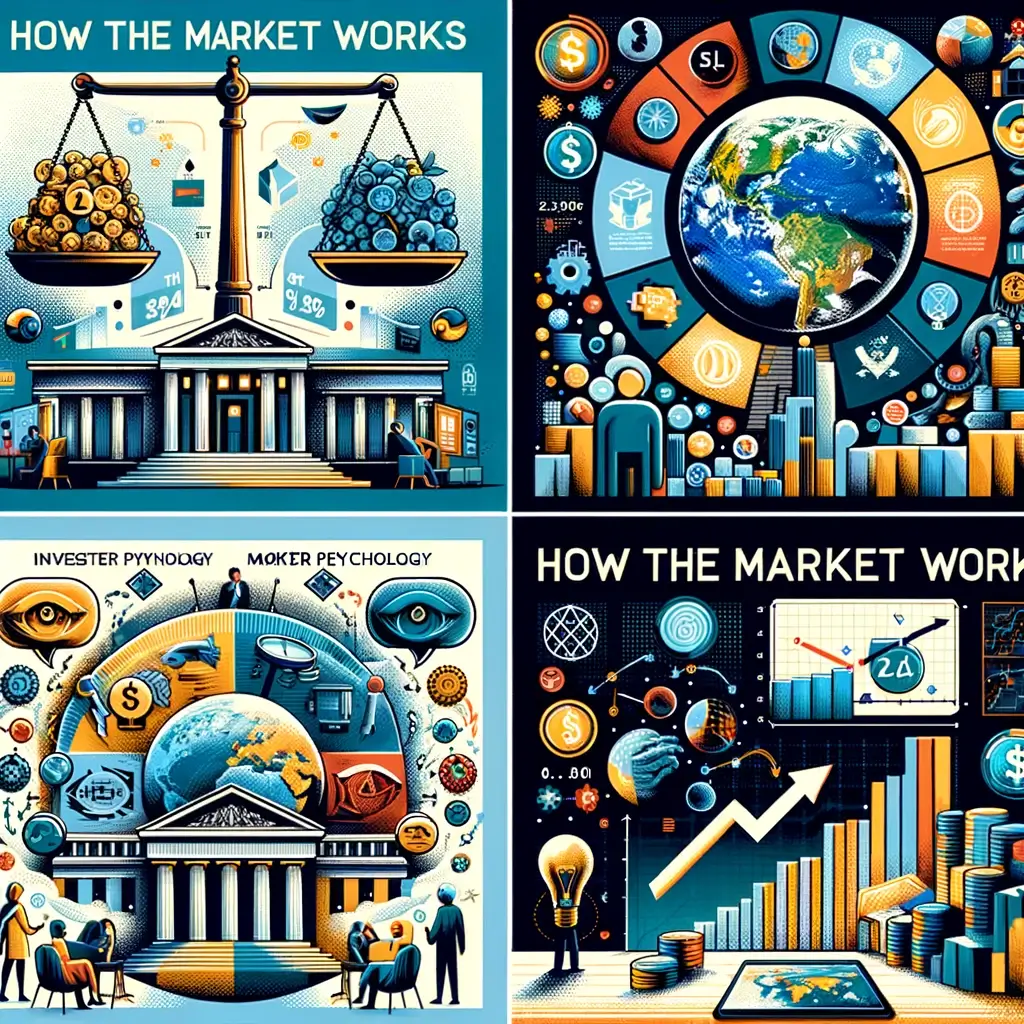In the dynamic landscape of the business world, a marketing degree is not just a piece of paper; it’s a passport to a realm of diverse and exciting career possibilities. Whether you are a prospective student contemplating your academic path or an individual looking to switch careers, understanding what you can do with a marketing degree is crucial. Let’s delve into the multifaceted world of marketing and explore the myriad opportunities that await you.
Table of Contents
The Foundation: What Does a Marketing Degree Offer?
Understanding the Basics
Before we embark on the journey of exploring the career avenues, let’s establish a foundational understanding of what a marketing degree encompasses. Pursuing a degree in marketing equips you with a comprehensive skill set, ranging from market research and consumer behavior analysis to strategic planning and communication.
Marketing education isn’t just about learning theoretical concepts; it’s a blend of theory and practical application. As a marketing student, you’ll likely engage in case studies, internships, and real-world projects, gaining hands-on experience that proves invaluable in the professional arena.
Unveiling Career Paths: Where Can Your Marketing Degree Take You?
1. Digital Marketing: Navigating the Online Landscape
In the digital age, businesses are increasingly relying on digital marketing strategies to connect with their audience. Armed with a marketing degree, you can dive into the world of search engine optimization (SEO), content marketing, and social media management. Imagine crafting compelling online campaigns that not only boost brand visibility but also drive sales. A digital marketing career allows you to stay at the forefront of technological advancements and consumer trends.
Anecdote: Sarah, armed with her marketing degree, embarked on a digital marketing journey. She transformed a small local business into an online sensation, leveraging her expertise in SEO and social media. The business not only survived but thrived in the competitive digital landscape.
2. Brand Management: Crafting and Nurturing Identities
For those inclined towards creativity and strategy, a career in brand management beckons. This role involves shaping and maintaining a brand’s identity, ensuring it resonates with the target audience. From creating captivating visuals to developing brand narratives, brand managers play a pivotal role in establishing and strengthening a brand’s presence in the market.
Anecdote: Alex, armed with a marketing degree, found his calling in brand management. He narrates how the journey involved not just marketing products but creating a brand personality. “It’s like being the storyteller for a brand, weaving narratives that captivate and connect.”
3. Market Research: Decoding Consumer Behavior
Ever wondered why certain products succeed while others fade into obscurity? Market research professionals hold the answers. With a marketing degree, you can delve into the intricate world of understanding consumer behavior, identifying market trends, and conducting competitor analysis. Companies rely on market research to make informed decisions, and your expertise could be the driving force behind their success.
Anecdote: Jessica’s journey in market research began with her insatiable curiosity. Armed with her marketing degree, she became a detective of consumer preferences. Her insights became instrumental in launching products that weren’t just successful but became cultural phenomena.
4. Public Relations: Shaping Perceptions
In the age of information, managing a company’s image is paramount. Enter the realm of public relations (PR), where your marketing acumen can be applied to cultivate and maintain a positive public image. From crisis management to media relations, PR professionals play a crucial role in shaping how the world perceives a brand or organization.
Anecdote: Michael recounts his experience in PR, “It’s not just about press releases; it’s about building relationships. One well-crafted message can turn a crisis into an opportunity.”
Your Step-by-Step Guide: How to Leverage Your Marketing Degree
Step 1: Self-Discovery
Before embarking on a specific career path, take the time for self-discovery. Identify your strengths, passions, and areas of interest within the vast field of marketing. Understanding what resonates with you will guide your career choices.
Step 2: Build a Diverse Skill Set
A marketing degree equips you with a foundational skill set, but it’s crucial to continuously expand and diversify your skills. Stay updated on the latest industry trends, explore emerging technologies, and consider additional certifications to enhance your expertise.
Pro Tip: Platforms like LinkedIn Learning offer a plethora of courses ranging from digital marketing essentials to advanced brand management strategies.
Step 3: Networking is Key
Forge connections within the industry through networking events, professional associations, and online platforms. Engage with professionals in your desired field, attend seminars, and participate in relevant discussions. Networking not only opens doors to opportunities but also provides valuable insights and mentorship.
Step 4: Internships and Practical Experience
Apply your theoretical knowledge in real-world scenarios through internships and practical experiences. Many companies offer internships to marketing students, providing a glimpse into the day-to-day responsibilities of different roles. Practical experience not only enhances your resume but also builds confidence and hones your skills.
Anecdote: Lisa’s internship at a renowned advertising agency not only solidified her passion for marketing but also led to a full-time position after graduation.
Step 5: Craft an Impressive Portfolio
Compile a portfolio showcasing your projects, achievements, and the impact of your work. Whether it’s a successful social media campaign, a market research project, or a brand revitalization strategy, a portfolio serves as tangible evidence of your capabilities.
Step 6: Stay Adaptable
The marketing landscape is ever-evolving. Stay adaptable and embrace change. Continuous learning and a willingness to explore new avenues will set you apart in a competitive market.
Investing in Your Future: Why a Marketing Degree Is Worth It
Confidence in Your Expertise
A marketing degree is not just an academic achievement; it instills confidence in your expertise. It’s a testament to your understanding of consumer behavior, market dynamics, and strategic thinking. This confidence becomes your strongest asset as you navigate the diverse realms of the marketing industry.
Versatility in Career Choices
One of the unparalleled advantages of a marketing degree is the versatility it offers. From traditional marketing roles to emerging fields like influencer marketing and data analytics, the options are vast. Your degree becomes a ticket to explore various avenues and find the niche that aligns with your interests and strengths.
Global Opportunities
In today’s interconnected world, businesses operate on a global scale. A marketing degree equips you with skills that transcend geographical boundaries. Whether you aspire to work for multinational corporations or launch your own global marketing consultancy, the world becomes your playground.
Impact on Business Success
Businesses thrive on effective marketing strategies. Your role as a marketing professional directly influences a company’s success. From increasing brand awareness to driving sales, your contributions have a tangible impact on the bottom line.
Resource: Explore the success stories of businesses that transformed their fortunes through effective marketing on Forbes.
Conclusion: Elevate Your Career with a Marketing Degree
In conclusion, a marketing degree is not just a qualification; it’s a journey of self-discovery, skill enhancement, and boundless opportunities. Whether you find your passion in digital marketing, brand management, market research, or public relations, the skills acquired through a marketing degree are your keys to unlocking a world of possibilities.
Invest in your future, embrace the ever-evolving marketing landscape, and confidently step into a career where your creativity, strategic thinking, and passion for connecting with people will not only be valued but also celebrated.
Frequently Asked Questions (FAQs) About Pursuing a Marketing Degree
Q1: What career paths can I pursue with a marketing degree?
A: A marketing degree opens doors to diverse career paths, including digital marketing, brand management, market research, public relations, advertising, and more. The versatility of the degree allows you to explore roles that align with your interests and strengths.
Q2: Is a marketing degree only beneficial for those interested in business or advertising?
A: No, a marketing degree is versatile and applicable across various industries. It’s not limited to business or advertising; it can be valuable in healthcare, nonprofit organizations, government agencies, and virtually any sector where understanding consumer behavior and effective communication are essential.
Q3: How does a marketing degree prepare me for the digital age?
A: Marketing programs incorporate digital marketing strategies, including SEO, social media management, and data analytics. You’ll gain practical experience with the latest digital tools, ensuring you are well-equipped to navigate the evolving landscape of the digital age.
Q4: Are internships essential for a successful career with a marketing degree?
A: While not mandatory, internships provide invaluable real-world experience, enhance your resume, and often lead to job opportunities. They allow you to apply classroom knowledge to practical situations, build a professional network, and gain insights into the day-to-day operations of the industry.
Q5: How can I stay updated on industry trends after earning a marketing degree?
A: Continuous learning is key. Stay informed by following industry publications, attending webinars and conferences, and participating in online forums. Additionally, consider pursuing certifications in emerging areas such as digital marketing, content marketing, or data analytics to stay ahead in the competitive field.















